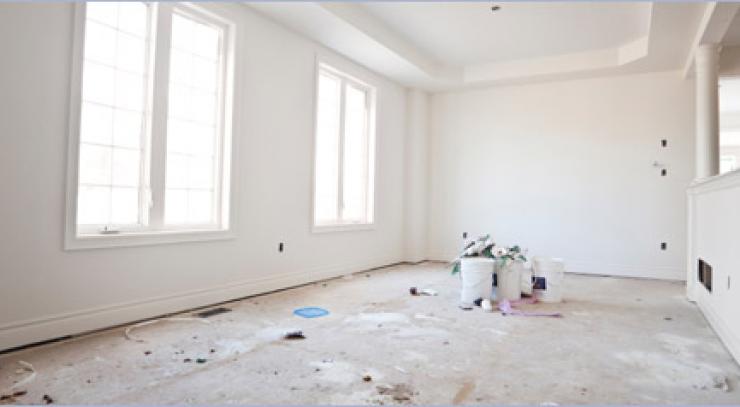How Much Sleep Do Seniors Need? The Importance of Proper Rest
Are you finding it challenging to get a good night's sleep as you age? Do you often wonder how much sleep you need to stay healthy and energized? Look no further than Rahma Garden Senior Living, where we understand the importance of proper rest for seniors. In this blog, we will delve into the topic of sleep requirements for seniors and highlight the significance of a good night's rest.
Aging can bring about changes in sleep patterns, making it essential for seniors to prioritize their sleep health. At Rahma Garden Senior Living, we believe that quality sleep is crucial for maintaining overall well-being and quality of life. Our team of experts is committed to providing a safe and comfortable environment that promotes restful nights and rejuvenating sleep. In this blog, we will explore the sleep requirements for seniors and delve into the significance of proper rest for their overall well-being.
The challenge: How much sleep do seniors need?
Sleep patterns tend to change as we age, and seniors often find it difficult to get the recommended amount of sleep. The question of how much sleep seniors actually need is a common concern. While it's true that individual sleep needs can vary, experts generally recommend that adults aged 65 and older aim for 7-8 hours of sleep per night. However, it's important to note that some seniors may require slightly more or less sleep depending on their individual circumstances.
Factors such as overall health, activity levels, and lifestyle habits can influence the sleep needs of seniors. Chronic health conditions, medication side effects, and pain can all disrupt sleep patterns, making it harder to achieve the recommended amount of rest. Additionally, lifestyle factors such as caffeine consumption, irregular sleep schedules, and lack of physical activity can also contribute to sleep difficulties in seniors.
Understanding the specific sleep needs of seniors is crucial for promoting their overall well-being. By addressing the challenges seniors face when it comes to sleep, we can help them achieve the rest they need to thrive.
The consequences of insufficient sleep in seniors
The importance of proper rest cannot be overstated, especially for seniors. Insufficient sleep can have a significant impact on their physical and mental health, as well as their overall quality of life. When seniors do not get enough sleep, they may experience a range of negative consequences.
Lack of sleep can lead to daytime drowsiness, difficulty concentrating, and reduced cognitive function. This can increase the risk of accidents and falls, posing a serious threat to seniors' safety. Inadequate sleep has also been linked to an increased risk of chronic conditions such as heart disease, diabetes, and obesity. It can weaken the immune system, making seniors more susceptible to infections and illnesses.
Furthermore, insufficient sleep can have a negative impact on seniors' mental health. It can contribute to feelings of irritability, mood swings, and depression. Sleep deprivation can also exacerbate cognitive decline and memory problems in seniors, affecting their ability to perform daily tasks and maintain independence.
Addressing the consequences of insufficient sleep is crucial for seniors' overall health and well-being. By prioritizing proper rest, seniors can enjoy improved cognitive function, better physical health, and enhanced emotional well-being.
Rahma Garden Senior Living: A solution for quality rest
At Rahma Garden Senior Living, we understand the importance of quality sleep for seniors. We are dedicated to providing a safe and comfortable environment that promotes restful nights and rejuvenating sleep. Our team of experts is committed to addressing the unique sleep needs of each resident, ensuring they receive the proper rest they deserve.
With spacious and well-appointed bedrooms, soothing décor, and personalized care plans, Rahma Garden Senior Living creates an ideal setting for quality sleep. We prioritize the creation of a conducive sleep environment, including measures such as minimizing noise, providing comfortable bedding, and regulating temperature and lighting. Our staff is trained to recognize and address sleep issues, ensuring that residents receive the support they need to achieve restful nights.
In addition to creating a conducive sleep environment, Rahma Garden Senior Living offers a range of activities and amenities that promote better sleep. Regular exercise programs, such as gentle yoga or tai chi, can help seniors improve sleep quality. Our on-site nutritionist ensures that residents receive balanced meals that support healthy sleep patterns. We also provide educational resources and workshops on sleep hygiene, equipping seniors with the knowledge and tools to prioritize proper rest.
By choosing Rahma Garden Senior Living, seniors can rest assured that their sleep needs will be met compassionately and comprehensively. We are dedicated to helping seniors enjoy the sleep they need to thrive in their golden years. Visit Rahma Garden Senior Living to learn more about our commitment to quality rest.
Experience Holistic Senior Living at Rahma Garden
At Rahma Garden, our mission is to provide a holistic approach to senior living, promoting dignity, well-being, and a sense of purpose. With a comprehensive range of care options, including Independent Living, At-Home Services, Personal Care, Skilled Nursing, Rehabilitation, and Affordable Senior Housing, we empower older adults to tailor their experiences for a fulfilling life. Our Thrive Wellness program fosters engagement and purpose across six dimensions of wellness, while our convenient location near Hagerstown, MD, downtown Waynesboro, and Chambersburg, PA, offers easy access to various recreational, educational, healthcare, shopping, and cultural activities. Experience our unique senior living community dedicated to supporting purposeful living and overall well-being. Contact us now to learn more and secure your spot at Rahma Garden.
Creating a conducive sleep environment for seniors
Creating a conducive sleep environment is essential for seniors to achieve the rest they need. Here are some key elements to consider when setting up a sleep-friendly space for seniors:
Comfortable bedding: Invest in high-quality mattresses and pillows that provide adequate support and comfort. Seniors may have specific preferences or needs, such as adjustable beds or pressure-relieving mattresses, which should be taken into account.
Noise reduction: Minimize noise disruptions by using soundproofing materials, such as curtains or carpets, to absorb sound. If external noise is a concern, consider using white noise machines or earplugs to promote a peaceful sleep environment.
Lighting control: Create a dark environment that promotes melatonin production, a hormone that regulates sleep. Use blackout curtains or blinds to block out external light sources and consider using nightlights or dimmable lighting for nighttime navigation.
Temperature regulation: Maintain a comfortable temperature in the bedroom, typically between 60-67°F (15-19°C). Seniors may have different temperature preferences, so it's important to consider individual needs and provide options for adjusting the room temperature.
Declutter: Keep the bedroom free of clutter and distractions. A clean and organized space can promote relaxation and reduce anxiety, helping seniors achieve better sleep quality.
By implementing these recommendations, seniors can create a sleep-friendly environment that supports restful nights and optimal sleep quality.
Tips for promoting better sleep in seniors
In addition to creating a conducive sleep environment, there are several tips and strategies that seniors can incorporate into their daily routine to promote better sleep. Here are some practical suggestions:
Establish a routine: Stick to a consistent sleep schedule by going to bed and waking up at the same time every day. This helps regulate the body's internal clock and promotes better sleep quality.
Limit daytime napping: While short power naps can be beneficial, excessive daytime napping can disrupt nighttime sleep. Limit daytime napping to 20-30 minutes and avoid napping too close to bedtime.
Engage in regular physical activity: Regular exercise can help improve sleep quality. Seniors should aim for at least 30 minutes of moderate-intensity exercise, such as walking or swimming, most days of the week.
Avoid stimulating substances: Limit the consumption of caffeine, especially in the afternoon and evening. It's also advisable to avoid alcohol and heavy meals close to bedtime, as they can interfere with sleep.
Create a bedtime routine: Establish a calming routine before bed to signal to the body that it's time to sleep. This can include activities such as reading, taking a warm bath, or practicing relaxation techniques like deep breathing or meditation.
By incorporating these tips into their daily routine, seniors can improve their sleep patterns and enjoy better overall sleep quality.
The role of nutrition and exercise in improving sleep quality
Proper nutrition and regular exercise play a significant role in improving sleep quality for seniors. Here's how these factors can positively impact sleep:
Nutrition: A balanced diet that includes sleep-promoting nutrients can support better sleep quality. Foods rich in tryptophan, such as turkey, chicken, and bananas, can help promote the production of serotonin, a hormone that regulates sleep. Magnesium-rich foods, like leafy greens and nuts, can also aid in relaxation and sleep.
Hydration: Staying adequately hydrated throughout the day can prevent sleep disruptions caused by thirst. Seniors should aim to drink enough water during the day without consuming excessive fluids close to bedtime to avoid disruptive nighttime trips to the bathroom.
Exercise: Regular physical activity has been linked to improved sleep quality. Engaging in moderate-intensity exercise during the day can help seniors fall asleep faster and achieve deeper sleep. However, it's important to avoid exercising too close to bedtime, as it can increase alertness and make it harder to fall asleep.
By adopting a nutritious diet and incorporating regular exercise into their routine, seniors can optimize their sleep quality and overall well-being.
Common sleep disorders in seniors and how to address them
Seniors are more prone to experiencing sleep disorders, which can significantly impact their sleep quality and overall health. Here are some common sleep disorders in seniors and strategies to address them:
Insomnia: Insomnia is characterized by difficulty falling asleep, staying asleep, or waking up too early. Seniors with insomnia can benefit from practicing good sleep hygiene, such as establishing a consistent sleep schedule, creating a relaxing bedtime routine, and avoiding stimulating activities before bed. In some cases, medication or cognitive-behavioral therapy may be recommended.
Sleep apnea: Sleep apnea is a condition characterized by interrupted breathing during sleep. It can lead to frequent awakenings and fragmented sleep. Seniors with sleep apnea may benefit from using continuous positive airway pressure (CPAP) devices or oral appliances to support proper breathing during sleep. Weight loss, positional therapy, and lifestyle changes can also help manage sleep apnea.
Restless legs syndrome (RLS): RLS causes uncomfortable sensations in the legs, often accompanied by an irresistible urge to move them. Seniors with RLS can find relief by practicing good sleep hygiene, engaging in regular exercise, and avoiding triggers such as caffeine or certain medications. Medications or therapies that target dopamine levels in the brain may also be prescribed.
Periodic limb movement disorder (PLMD): PLMD involves involuntary leg movements during sleep, which can disrupt sleep quality. Treatment options for PLMD may include medication or lifestyle modifications, such as avoiding stimulants and maintaining a regular sleep schedule.
Addressing sleep disorders in seniors requires a comprehensive approach that may involve lifestyle changes, medical interventions, and personalized care. At Rahma Garden Senior Living, we work closely with residents to identify and address sleep disorders, ensuring that they receive the necessary support and treatment.

Rahma Garden
Conclusion: Prioritizing proper rest for seniors at Rahma Garden Senior Living
Proper rest is vital for seniors to maintain their overall health, well-being, and quality of life. Rahma Garden Senior Living understands the unique sleep needs of seniors and is committed to providing a safe and comfortable environment that promotes restful nights and rejuvenating sleep.
By understanding the sleep requirements of seniors, addressing the consequences of insufficient sleep, and implementing strategies to promote quality rest, Rahma Garden Senior Living ensures that residents can enjoy nights of peaceful slumber and wake up feeling refreshed, energized, and ready to embrace each day to the fullest.
Ready to experience the rejuvenating benefits of quality sleep at Rahma Garden Senior Living? Contact us today or visit RahmaGarden.com to learn more about our commitment to providing a comfortable and restful environment for seniors
Remember, a good night's sleep is just a step away at Rahma Garden Senior Living!










